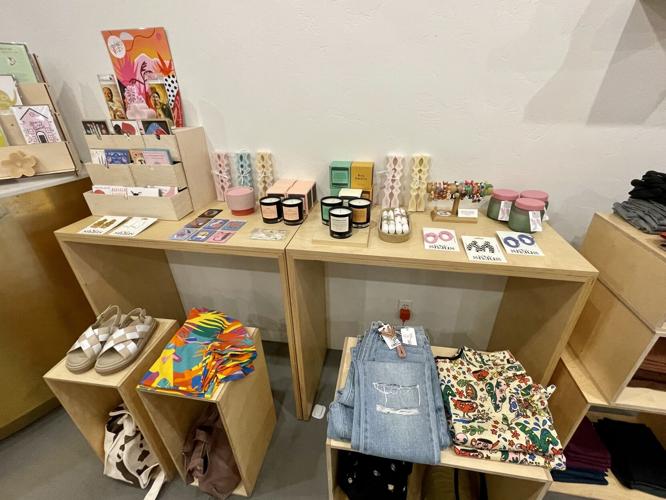A green “Bring Your Bag” sign is posted on El Be Goods front door, a boutique in downtown Tucson. It is one of over 50 Tucson stores that joined the Consortium to Reinvent the Retail Bag‘s initiative to reduce plastic waste through the “Bring Your Own Bag” pilot.
The Consortium, managed by the investment firm Closed Loop Partners, is a collaboration of leading brands including the founding partners; CVS Health, Target and Walmart. They have worked for three years to develop bag reduction solutions. The first-of-its-kind pilot will be tested from May 1 to July 30 throughout an evolving list of more than 150 stores in Tucson, Denver and the surrounding metro areas.
National brands involved in this initiative include CVS Health; Target; Dick’s Sporting Goods; Dollar General; the Kroger Co., through its King Soopers and Fry’s stores; TJX, through T.J. Maxx, Marshalls and HomeGoods stores; and Ulta Beauty.
The pilot aims to test bag reduction solutions to see if a collaborative retail effort can encourage customers to remember their reusable bags more often and bring them to retailers beyond grocery stores.
Laura Stupar, owner of El Be Goods, 160 S. Avenida Del Convento, and a member of the fashion industry for over two decades, has incorporated sustainability into her business and products since the boutique opened in 2019. At the store, they try not to use bags when checking customers out, but when they do, they use recycled paper bags, she said.
Although El Be Goods is already practicing many of the initiative’s strategies, Stupar was excited to partner with local retailers and national chains through the initiative.
“When I saw that this was a collective, cohesive effort, it was just a no-brainer,” Stupar said.
America uses more than 100 billion plastic bags a year and more than 300 bags per person. Fewer than 10% of plastic bags are recycled, and the remaining bags take about 1,000 years to break down.
The Consortium said changing from a “disposable” culture to an economy that shares and reuses materials is urgent. They say that small changes can make a major impact; even a 1% bag reduction can eliminate 1 billion discarded plastic bags.
Research from the Consortium showed that although reusable bags have been widely adopted, they are not consistently used; this is the issue they plan to target.
Every participating store will test bag reduction strategies provided in their playbook, including customer prompts, marketing and signage in and around the stores. The Consortium will explore the easy, low-cost strategies’ effectiveness in creating a cultural shift where bringing reusable bags will be the norm.
Stupar is introducing an incentive strategy in her store, for each person who opts out of using a bag, the store will donate 10 cents to charity.
“The incentive, you would think, would be to preserve, to be eco-conscious, but that seems to not be enough,” Stupar said. “So we thought we’d offer a little bit more.”
Stupar said she’s wanted to be involved in a sustainability program for about two years and is glad she can do it with a community of other businesses.
“It’s a big topic already,” Stupar said regarding reducing plastic waste. “I’m glad someone is taking this initiative and taking the step.”
Learn more about the effort at tucne.ws/1n79.
The Republic Services recycling plant and Los Reales Sustainability Campus were the subjects of a tour by the Tucson Department of Environmental Services.





